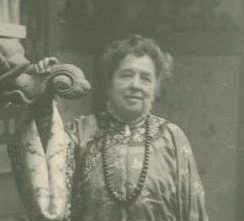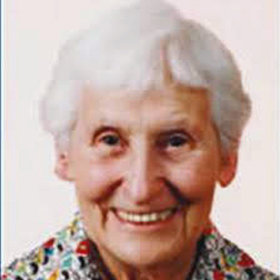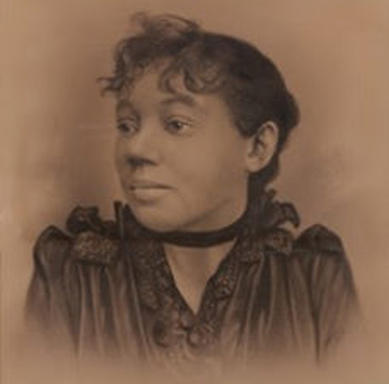Her close friends lovingly called her MTV, so appropriate for a woman who channeled everything Portuguese in a way that no other South Coast woman has done. Deeply rooted in her Azorean heritage, Dr. Mary T. Vermette (1934-2003) worked with the Azorean Maritime Heritage Society and the New Bedford Whaling Museum to promote Azorean culture and the shared whaling heritage between New Bedford and the Azores.
A leader in the advancement of Portuguese culture and language, Dr. Mary T. Vermette (1934-2003) was the first Portuguese American woman to receive a Ph.D. in Portuguese Studies from Harvard University. Mary Theresa Silvia was born in Dartmouth, the daughter of Azorean immigrants, Mary S. from Terceira, and Charles Silvia from Faial. Her father was a dairy farmer, and Mary would often deliver milk with him on early morning routes. She graduated from Our Lady of Mt. Carmel School, a Catholic elementary school in New Bedford that included study of the Portuguese language at every grade level. At Our Lady of Mt. Carmel School, Mary strengthened her experience of Portuguese culture that would become her life’s focus.
Deeply rooted in her Azorean heritage, Mary worked with the Azorean Maritime Heritage Society and the New Bedford Whaling Museum (NBWM) to promote Azorean culture and the shared whaling heritage between New Bedford and the Azores. In 1997, Mary founded the Azorean Maritime Heritage Society and became its first president. She found an unwavering partner in the NBWM to tell the story of Azorean whaling and its influence on New Bedford. First, whaleboat Bela Vista was built in Pico and transported to the Whaling Museum’s “Casa dos Botes,” Portuguese for boat house. Next, from 1999 to 2000, Mary oversaw the construction of two Azorean whaleboats, Faial and Pico, in the Casa dos Botes. During construction, Mary would often have lunch with the Azorean whaleboat builders before her attendance at meetings and lectures. The theme of today’s Casa dos Botes Discovery Center emphasizes the “bridge of whaleships,” Mary’s own words used to describe the span of the Atlantic between New Bedford and the Azores that linked Azorean whaling to New Bedford whalers. In a 1999 Standard-Times interview, Mary stated, “The whaleboats are a bridge between here and the Azores; something physical of our past that we can see, that shows the presence of the Azorean people here.”
To create a permanent exhibit of this shared maritime heritage, Mary worked with the NBWM to obtain $500,000 from the Portuguese government to create the Azorean Whaleman Gallery, the only permanent exhibition space in the United States that honors the Portuguese people and their contributions to American maritime heritage. Mary’s vision to make this story everlasting was realized in 2010, when the Azorean Whaleman Gallery opened at the NBWM. This exhibit includes a large-scale model of an Azorean whaleboat and a recreated lookout.
Mary completed undergraduate studies at Salve Regina College, then earned two master’s degrees before receiving her doctorate from Harvard in 1975. She taught Portuguese at Dartmouth High School for many years. She began her career in higher education at Southeastern Massachusetts University (SMU), where she helped to create the Center for the Portuguese Speaking World in 1975 and was its second director. This center would become today’s Center for Portuguese Studies and Culture at the University of Massachusetts Dartmouth (UMD). For about 15 years, she was the head of the Master’s Program in Bilingual Education, a program she established at SMU with Dr. Richard Fontera. After SMU became UMD, Mary took on various roles, including instructor in a Portuguese culture and language summer immersion program that was offered for several years. Through this immersion program, Portuguese Americans and others traveled to Portugal and the Azores, with Mary as their guide, and spoke Portuguese while visiting museums, churches, and other cultural sites. Participants agreed that after three to six weeks of immersion led by Mary, they fell in love with all things Portuguese.
Alongside her work at the university level, Mary supported the Casa da Saudade branch library in New Bedford. She was a founding member of Casa da Saudade in 1971 and also served as vice president of Friends of Casa da Saudade. The library, located in the heart of New Bedford’s Portuguese community, houses English and Portuguese collections on Portuguese history, literature, and culture and on the cultures of the Portuguese speaking countries. Through Casa da Saudade, Mary reached beyond academia to promote literacy within the community for all age and educational levels. Her portrait hangs in the main reading room as a testament to her dedication to this community.
Mary passed away on November 24, 2003, leaving her husband of 41 years, Robert A. Vermette. Although she did not live to see the completion of some of these projects, her vision inspired them and her spirit lives on through them. At her portrait unveiling at Our Lady of Mt. Carmel School auditorium in 2004, colleagues and friends reminisced about this remarkable woman. Her students called her Dr. Vermette, her peers called her Mary or Maria, and some of her very close friends lovingly called her MTV, so appropriate for a woman who channeled everything Portuguese in a way that no other South Coast woman has done.
Ann O’Leary, Emily Bourne Research Fellow
Information from
-
Deane, Jennifer. “Azorean Whaleboats to Be Assembled at Museum.” SouthCoast Today, 20 Jan. 1999, http://www.southcoasttoday.com/article/19990120/news/301209987.
-
Ferreira, Joao. “Icon of Portuguese Culture Dies at 69.” The Standard-Times 25 Nov. 2003: A3.
-
The Portrait Unveiling: Dr. Mary Theresa Silvia Vermette. New Bedford Cable Access, 2004.
![[Mary T Vermette], c. 20th century, Photograph, Courtesy of The Standard-Times Photo of Dr. Mary T. Vermette](https://historicwomensouthcoast.org/wp-content/uploads/2018/05/Mary-T-Vermette-250x250.jpg)




